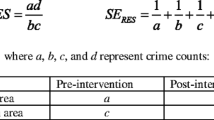Abstract
We use the 2010 and 2013 Chinese General Social Survey (CGSS) data to examine the relationships between perceived severity of environmental issues, individual happiness and pro-environmental actions. We find that perceived severity of environmental issues has little, if not insignificant, correlation with happiness, but it has significant correlation with pro-environmental actions. We also find that the perceptions of both central and provincial governments’ efforts in addressing environmental issues are associated with individual happiness, willingness to pay for environment-friendly products and pro-environmental actions, no matter whether objective measures of provincial environmental issues and efforts are controlled for. And these correlations are robust across the two waves of CGSS. The findings imply that governments should not only allocate resources to addressing environmental issues but also improve communication in order to help citizens better understand governments’ efforts.

Similar content being viewed by others
Notes
Family income and provincial GDP per capita have been transformed into CPI-weighted purchasing power measures by taking the natural logarithm of the respective variable to the provincial CPI ratio.
This paper does not go into more detailed discussions of these control variables in order to focus on environment related variables, which are the variables of interest in the present study.
The two waves of CGSS asked different sets of questions on environmental issues. We therefore analysed the two waves independently and used the 2013 wave as a robustness check for the results obtained from the 2010 wave for repeated questions and further elaborate on the questions that were not asked in the 2010 wave.
Consistent with the literature, in our ordered logit results, which are not reported here, the key variables remain the same signs and significance as they are in OLS results.
Results for the control variables (not shown in the tables but available from the authors) suggest that those respondents who are younger, married, female, physically and/or mentally healthier, better educated, wealthier, have a higher income, and live in the wealthier northern and western regions (relative to western region) are happier. In the willingness-to-pay specifications, those who are better educated, younger, wealthier, less physically sound, have better mental health and are religious are more willing to pay a higher price to improve environment quality. These results are consistent with the findings in existing studies in China.
Please also see the discussions in Sect. 5, in which we find that frequent Internet users are more likely to take environmental actions in China.
Recall that in the 2010 CGSS results perceptions of greater efforts by both central and provincial governments are associated with higher happiness among the full sample; that a perception of greater effort by the central government is associated with higher happiness among urban residents; and that perceived greater effort by provincial governments is associated with higher happiness among rural residents.
References
Bian, Y., & Li, L. (2012). The Chinese General Social Survey (2003-8): Sample design and data evaluation. Chinese Sociological Review, 45, 70–97.
Chan, R. Y. K. (2001). Determinants of Chinese consumers’ green purchase behavior. Psychology and Marketing, 18, 389–413.
Chen, Y., Ebenstein, A., Greenstone, M., & Li, H. (2013a). Evidence on the impact of sustained exposure to air pollution on life expectancy from China’s Huai River Policy. Proceedings of the National Academy of Sciences of the United States of America, 110, 12936–12941.
Chen, Z., Wang, J.-N., Ma, G.-X., & Zhang, Y.-S. (2013b). China tackles the health effects of air pollution. Lancet, 382, 1959–1960.
Cheng, Z., King, S. P., Smyth, R., & Wang, H. (2014a). Housing property rights and subjective wellbeing in urban China. Monash University Department of Economics Disucssion Paper No. 44/14.
Cheng, Z., & Smyth, R. (2015a). Crime victimization, neighborhood safety and happiness in China. Economic Modelling, 51, 424–435.
Cheng, Z., & Smyth, R. (2015b). Sex and happiness. Journal of Economic Behavior and Organization, 112, 26–32.
Cheng, Z., & Smyth, R. (2015c). Why give it away when you need it yourself? Understanding public support for foreign aid in China. Journal of Development Studies, 52, 53–71.
Cheng, Z., Wang, H., & Smyth, R. (2014b). Happiness and job satisfaction in urban China: A comparative study of two generations of migrants and urban locals. Urban Studies, 51, 2160–2184.
Eaton, S., & Kostka, G. (2014). Authoritarian environmentalism undermined? Local leaders’ time horizons and environmental policy implementation in China. The China Quarterly, 218, 359–380.
Economy, E. C. (2004). The river runs black: The environmental challenge to China’s future. Ithaca: Cornell University Press.
Economy, E. (2014). Environmental governance in China: State control to crisis management. Daedalus, 143, 184–197.
Economy, E. C., & Levi, M. (2014). By all means necessary: How China’s resource quest is changing the world. New York: Oxford University Press.
Ferrer-I-carbonell, A., & Frijters, P. (2004). How important is methodology for the estimates of the determinants of Happiness? The Economic Journal, 114, 641–659.
Ferrer-I-carbonell, A., & Gowdy, J. M. (2007). Environmental degradation and happiness. Ecological Economics, 60, 509–516.
Harris, P. G. (2006). Environmental perspectives and behavior in China: Synopsis and bibliography. Environment and Behavior, 38, 5–21.
He, H., Xu, J., & Wanxin, L. (2010). Has the centralized environmental governance regime worked in China? http://www.efdinitiative.org/publications/has-centralized-environmental-governance-regime-worked-china. Accessed November 5, 2015.
Hunter, L. M., Strife, S., & Twine, W. (2010). Environmental perceptions of rural South African residents: The complex nature of environmental concern. Society and Natural Resource, 23, 252–541.
Jonung, L. (1981). Perceived and expected rates of inflation in Sweden. The American Economic Review, 71, 961–968.
Kempton, W. M., Boster, J. S., & Hartley, J. A. (1995). Environmental values in American culture. Boston: MIT Press.
Khachatryan, H., Campbell, B., Hall, C., Behe, B., Yue, C., & Dennis, J. (2014). The effects of individual environmental concerns on willingness to pay for sustainable plant attributes. HortScience, 49, 69–75.
Lee, A. C. K., & Maheswaran, R. (2011). The health benefits of urban green spaces: A review of the evidence. Journal of Public Health, 33, 212–222.
Li, L. (2004). Political trust in rural China. Modern China, 30, 228–258.
Li, Z., Folmer, H., & Xue, J. (2014). To what extent does air pollution affect happiness? The case of the Jinchuan mining area, China. Ecological Economics, 99, 88–99.
Li, W., & Higgins, P. (2013). Controlling local environmental performance: An analysis of three national environmental management programs in the context of regional disparities in China. Journal of Contemporary China, 22, 409–427.
Li, W., & Li, D. (2012). Environmental information transparancy and implications for green growth in China. Public Administration and Development, 32, 324–334.
Liao, P.-S., Shaw, D., & Lin, Y.-M. (2014). Environmental quality and life satisfaction: Subjective versus objective measures of air quality. Social Indicators Research, 124, 599–616.
Liu, J. (2011). Picturing a green virtual public space for social change: A study of Internet activism and Web-based environmental collective actions in China. Chinese Journal of Communication, 4, 137–166.
Mackerron, G., & Mourato, S. (2009). Life satisfaction and air quality in London. Ecological Economics, 68, 1441–1453.
Mol, A. P. J., & Carter, N. T. (2006). China’s environmental governance in transition. Environmental Politics, 15, 149–170.
Pauw, J. B.-D., & Petegem, P. V. (2011). A cross-cultural study of environmental values and their effect on the environmental behavior of children. Environment and Behavior, 45, 551–583.
Ranyard, R., Missier, F. D., Bonini, N., Duxbury, D., & Summers, B. (2008). Perceptions and expectations of price changes and inflation: A review and conceptual framework. Journal of Economic Psychology, 29, 378–400.
Rehdanz, K., & Maddison, D. (2008). Local environmental quality and life-satisfaction in Germany. Ecological Economics, 64, 787–797.
Shi, X. (2015). Factors influencing the environmental satisfaction of local residents in the coal mining area, China. Social Indicators Research, 120, 67–77.
Smyth, R., Mishra, V., & Qian, X. (2008). The environment and well-being in urban China. Ecological Economics, 68, 547–555.
Smyth, R., Nielsen, I., Zhai, Q., Liu, T., Liu, Y., Tang, C., et al. (2011). A study of the impact of environmental surroundings on personal well-being in urban China using a multi-item well-being indicator. Population and Environment, 32, 353–375.
Souleles, N. S. (2004). Expectations, heterogeneous forecast errors, and consumption: Micro evidence from the Michigan consumer sentiment surveys. Journal of Money, Credit and Banking, 36, 39–72.
Sullivan, J., & Xie, L. (2009). Environmental activism, social networks and the internet. The China Quarterly, 198, 422–432.
The World Bank. (2007). Cost of pollution in China: Economic estimates of physical damages. Washington: The World Bank.
The World Bank, & The State Council of China. (2013). Seizing the opportunity of green development in China. China 2030: Building a modern, harmonious, and creative society. Washington: The World Bank.
Thompson, T. N. (2013). Choking on China: The superpower that is poisoning the world. https://www.foreignaffairs.com/articles/china/2013-04-08/choking-china. Accessed July 19, 2015.
Tilt, B., & Xiao, Q. (2010). Media coverage of environmental pollution in the People’s Republic of China: Responsibility, cover-up and state control. Media, Culture and Society, 32, 225–245.
Truex, R. (2014). Consultative authoritarianism and its limits. Comparative Political Studies.
Vermeer, E. B. (1998). Industrial pollution in China and remedial policies. The China Quarterly, 156, 952–985.
Wang, Y. (2015). Politically connected polluters under smog. Business and Politics, 17, 97–123.
Wang, H., Cheng, Z., & Smyth, R. (2015). Does consuming more make you happier? Evidence from Chinese panel data. Bank of Finland Institute for Economies in Transition Discussion Paper No. 21/15.
Wang, M., Webber, M., Finlayson, B., & Barnett, J. (2008). Rural industries and water pollution in China. Journal of Environmental Management, 86, 648–659.
Welsch, H. (2006). Environment and happiness: Valuation of air pollution using life satisfaction data. Ecological Economics, 58, 801–813.
Wilson, E. O. (1993). Biophilia and the conservation ethic. In S. R. Kellert & E. O. Wilson (Eds.), The biophilia hypothesis. Washinton, DC: Island Press.
Wong, H. (2013). 2013 will be remembered as the year that deadly, suffocating smog consumed China. http://qz.com/159105/2013-will-be-remembered-as-the-year-that-deadly-suffocating-smog-consumed-china/. Accessed July 20, 2015.
Xu, B. (2014). China’s environmental crisis. http://www.cfr.org/china/chinas-environmental-crisis/p12608. Accessed July 19, 2015.
Yang, G., & Calhoun, C. (2007). Media, civil society, and the rise of a green public sphere in China. China Information, 21, 211–236.
Yang, G., Wang, Y., Zeng, Y., Gao, G. F., Liang, X., Zhou, M., et al. (2013). Rapid health transition in China, 1990–2010: Findings from the Global Burden of Disease Study 2010. Lancet, 381, 1987–2015.
Yu, X. (2014). Is environment ‘a city thing’ in China? Rural–urban differences in environmental attitudes. Journal of Environmental Psychology, 38, 39–48.
Zhang, Q., & Crooks, R. (2012). Toward an environmentally sustainable future: Country environmental analysis of the People’s Republic of China. Manila: Asian Development Bank.
Zhao, H.-H., Gao, Q., Wu, Y.-P., Wang, Y., & Zhu, X.-D. (2014). What affects green consumer behavior in China? A case study from Qingdao. Journal of Cleaner Production, 65, 143–151.
Zhong, L.-J., & Mol, A. P. J. (2008). Participatory environmental governance in China: Public hearings on urban water tariff setting. Journal of Environmental Management, 88, 899–913.
Author information
Authors and Affiliations
Corresponding author
Rights and permissions
About this article
Cite this article
Wang, B.Z., Cheng, Z. Environmental Perceptions, Happiness and Pro-environmental Actions in China. Soc Indic Res 132, 357–375 (2017). https://doi.org/10.1007/s11205-015-1218-9
Accepted:
Published:
Issue Date:
DOI: https://doi.org/10.1007/s11205-015-1218-9




